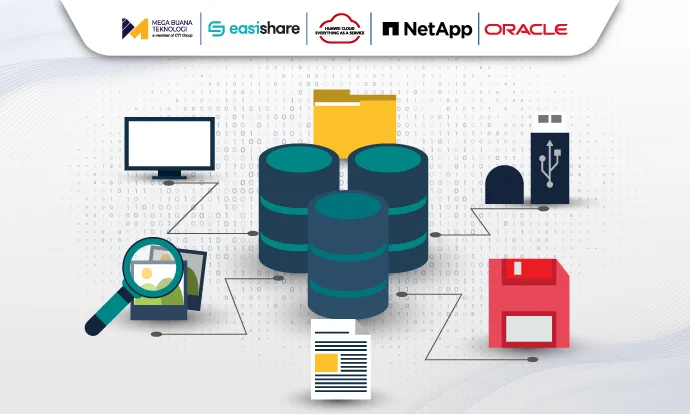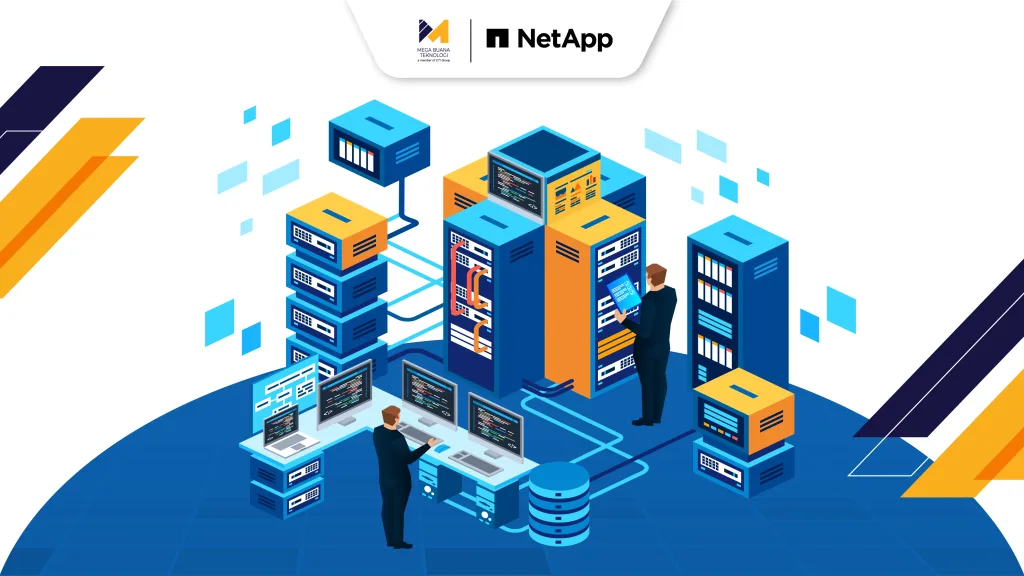Have you ever wondered how Instagram photos, YouTube videos, or TikTok content are stored and accessed so seamlessly? The answer lies in object storage- a modern data storage technology designed to handle massive amounts unstructured data efficiently and securely
For businesses, especially those managing vast amounts of data like images, videos, or documents, Object storage is an essential tool. Let’s dive into what object storage is, itsfunctions, benefits, and why its game-changer for modern data management.
What is Object Storage?
Object storage is a data storage system that stores information in the form of objects. Unlike traditional storage systems such as file storage (based on folders) or block storage, object storage groups data into independent units called objects.
Each object consists of three main components:
- Data: The main content that you want to store.
- Metadata: Additional information about the data, such as file size, type, creation date, or even descriptive tags.
- Unique Identifier: A distinctive ID that simplifies locating the objects without navigating folder, This design makes object storage ideal for managing large scale, unstructured data while enabling quick and efficient access.
What Are the Functions of Object Storage?
Object storage offers various functions that meet the needs of individuals and large companies. Here are its key functions:
1. Data Storage and Management
Object storage systems are designed to handle unstructured data such as images, videos, PDFs, and streaming data. Rich metadata allows users to manage data more effectively, simplifying search and improving operational efficiency.
2. Data Backup and Disaster Recovery
This technology supports redundancy, meaning data is duplicated across multiple locations, minimizing the risk of loss due to hardware failure or disaster.
3. Archiving Data
An ideal solution for long-term data archiving. For example, businesses can store legal records, annual reports, or compliance documents without worrying about data loss or future accessibility issues.
How Does Object Storage Work?
Object storage operates on a simple yet highly effective principle. Here’s how it works:
Storing as Objects
Data is stored as independent objects, not as files within folders like in file storage.
Unique Identifier
Each object has a unique marker, allowing direct access to the data without a folder structure.
Rich Metadata
Metadata not only stores basic information like the file name but also detailed descriptions that make management and search easier.
API Access
Object storage supports API-based access, making it easier to integrate with various applications, including cloud-based ones.
This process makes object storage a flexible and scalable solution for handling large-scale data.
Advantages of Object Storage for Companies
Object storage technology has several advantages over traditional data storage methods.
1. Large Storage Capacity
Object storage is designed to handle data on a scale from petabytes to exabytes. This system can grow without limits, making it ideal for large companies that need long-term storage.
2. Easy Data Search
With deep metadata, object storage allows users to quickly search for data based on keywords, without having to open folders one by one.
3. No Need for Nested Folders
Unlike file storage, object storage doesn’t require a folder hierarchy. Each piece of data can be accessed directly through a unique identifier, simplifying data management.
4. Cost-Effective
Object storage uses a pay-as-you-go model, where users only pay for the capacity, they use. This makes it more economical than traditional storage systems.
5. More Flexible and Secure
Object storage supports encryption, authentication, and data replication, ensuring data remains secure and accessible at any time. This flexibility makes it an ideal solution for cloud storage needs.
Read More: What is Machine Learning? Opportunities and Challenges for Businesses
Comparing Object Storage with Other Storage Technologies
How does object storage compare to other storage technologies? Here’s the difference:
File Storage
File storage uses a folder and file hierarchy. It’s suitable for structured data but not ideal for large unstructured data.
Block Storage
Block storage breaks data into small blocks for high performance, such as databases. However, it is more complex and costly compared to object storage.
Object Storage
Ideal for large unstructured data. Object storage offers flexibility, cost efficiency, and easy integration with the cloud.
Examples of Object Storage Use in Industries
Object storage has various applications in everyday life and business, including:
- Content Streaming: Storing videos or audio for streaming services.
- Backup and Disaster Recovery: Protecting important data with a secure backup system.
- Data Analytics: Storing data from IoT devices or big data for further analysis.
- Long-Term Archiving: Storing legal documents or audit data.
Is Object Storage Important for Companies?

Object storage is crucial for companies looking to manage data efficiently in the digital age. One of its main advantages is its high scalability, where businesses can add storage capacity without limits as data grows. This ensures that large data sets, such as videos, application logs, and IoT data, can be managed without running out of storage space.
Additionally, object storage offers high data security. With features like data encryption and redundancy (duplication of data across multiple locations), this technology protects vital information from the risks of loss due to disasters or cyber-attacks.
Companies can also benefit from operational efficiency, as rich metadata makes searching and managing data easier without a complex folder structure. Finally, full support for cloud technology allows seamless integration with various cloud-based applications, simplifying businesses’ digital transformation strategies.
Object Storage Recommendations from MBT
MBT, part of the CTI Group, offers object storage solutions designed to meet the needs of businesses across various sectors. Here are some of the top products from MBT that can support your company’s data management:
1. EasiShare
EasiShare is a platform designed to meet secure and efficient file sharing needs. This solution allows businesses to manage data centrally, protect sensitive information, and support team collaboration. With features like end-to-end data encryption, it ensures the security of information when files are shared between users.
EasiShare is also ideal for structured data backup, ensuring data remains safe and recoverable anytime in case of loss or damage.
2. Huawei Cloud
Huawei Cloud is a cloud-based object storage solution with exceptional scalability. This platform is designed to handle large-scale data and support data analytics directly. With advanced technology, Huawei Cloud offers high-level security through data encryption, access control, and redundancy, making it a reliable solution for storing critical business data.
Another advantage of Huawei Cloud is its ability to integrate with various enterprise applications, supporting cross-platform data management and enhancing operational efficiency for large businesses needing high flexibility in data storage.
3. NetApp
NetApp is a hybrid cloud solution combining the benefits of on-premises storage with the flexibility of cloud-based storage. This solution is perfect for companies with complex data management needs, such as large databases, business applications, or digital archiving.
With NetApp, businesses can leverage the cost-effectiveness of cloud storage while maintaining full control over data stored on physical sites. The technology supports easy data management, operational cost optimization, and data protection through automatic backup features and cross-location data replication.
4. Oracle Object Storage
Oracle Object Storage is a cloud-based storage solution with high performance, designed to meet enterprise needs. This solution provides quick access to data, supports cloud-based applications, and can handle intensive workloads like Big Data and Machine Learning.
Security is one of Oracle’s strengths, with features like automatic data encryption and strict access control. Additionally, Oracle Object Storage is designed to support massive scalability, allowing businesses to increase storage capacity as their data grows.
Get the Best Object Storage from MBT
MBT, as part of CTI Group, is here to meet your data storage needs with the latest technology. MBT is committed to offering flexible, secure, and cost-effective solutions. Contact us now to get the best solutions for your company’s digital transformation.
Author: Ary Adianto
Content Writer at CTI Group




